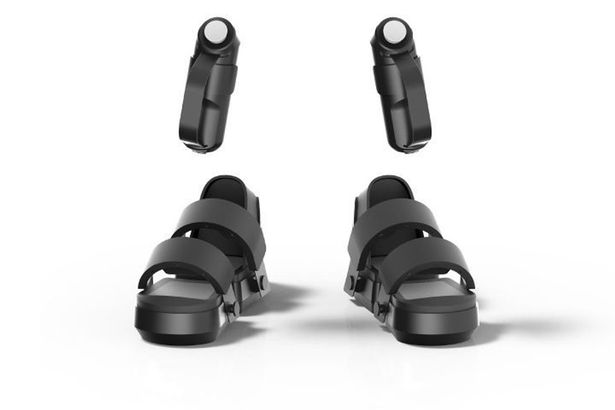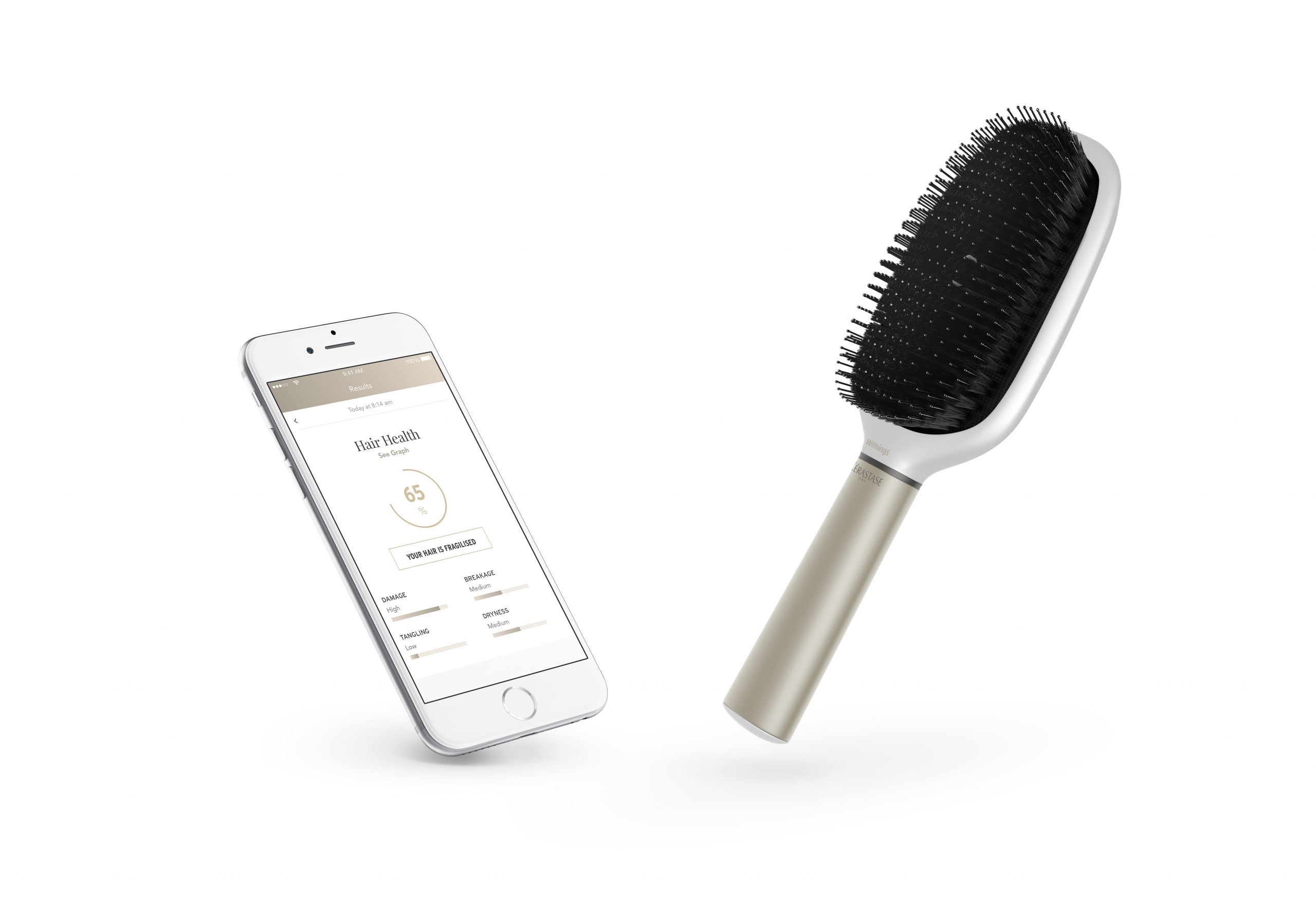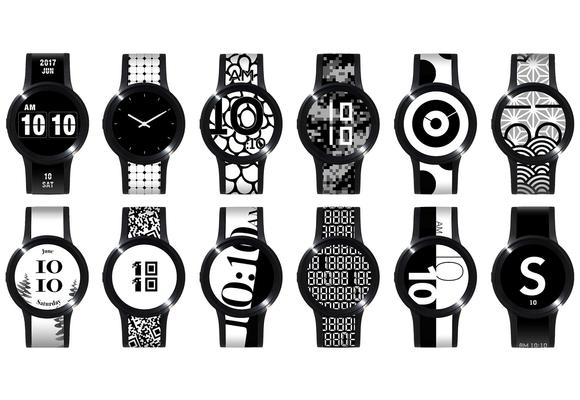Virtual reality shoes

Developed by Japanese firm Cerevo, the Taclim VR shoes allow you to use your feet to interact with what you see in virtual reality. The shoes give haptic feedback and vibrations to the wearer to give them a sense of walking on the virtual surfaces they see in front of them. In enabling haptic feedback for the user’s hands and feet according to images and sounds in a VR space, users become more engrossed, resulting in increased immersion above and beyond what is currently experienced visually and aurally when in a VR world. Moreover, the 9-axis sensor built into the shoes and gloves functions as an input device to capture movement to reflect actions in the VR space.
Taclim is scheduled to be available for purchase in Autumn 2017 at a price between US$1,000 to 1,500.
Hypersuit
Another extension to a virtual reality headset, the Hypersuit is a wearable simulator from French firm THEORY that gives the wearer the impression they have wings or can fly like a superhero. Intended for entertainment and gaming purposes, users lie on a movable exoskeleton platform and use their arms to control the direction of “flight”, while a fan blows in their face to complete the illusion.
Moreover, it allows the user to experience completely unique sensations, including flying through the air and swimming in the deep sea. One can even have a go at being an astronaut, without the terrifying notion of actually being launched into space. The suit relies on arm movements which control the user’s journey. The exoskeleton requires the user to lie down on top of it, wearing a virtual reality headset. Then, the user’s real life movements control how their character moves on screen.
Hair-growth helmet
The iGrow hair growth system from Apira Science is a helmet that blasts your scalp with a combination of red lasers and LEDs, in an attempt to stimulate hair growth. The company claims that the lasers energize and stimulate activity within the hair growing cell walls, resulting in a return to the normal function of the hair follicles.

The result of a collaboration between hair care giant Kerastase, tech giant Withings and L’Oreal’s Research and Innovation Technology Incubator, the Hair Coach claims to be the world’s first smart hairbrush. It uses a range of sensors to spot hair damage and offer feedback to users on how to better protect their hair, including changes to brushing technique.
The Kérastase Hair Coach—with technology powered by Nokia-owned Withings—features a microphone (which listens to the sound of brushing to identify patterns); an accelerometer and a gyroscope (to analyze brushing patterns and count brush strokes); and sensors (to determine if the the brush is being used on dry or wet hair). Via connection with an app, the brush can tell a user how how often hair is brushed—and also warn consumers if they are brushing too hard. The brush vibrates to warn against over brushing.
TVs that seem to disappear
In the biggest trend to emerge, Sony, LG, and Samsung all moved the core components of their flagship TV sets to outside hardware. At Samsung, all of the ports and brains of its new models are housed in an outside box. Sony built the guts for its top TV into a subwoofer that doubles as a TV stand.
Moreover, quite impressive is the new W7 from LG is just 2.5mm thick and everything that actually powers the TV is jammed into a futuristic-looking Dolby Atmos soundbar.
LG also had a prototype OLED TV that is 40 percent translucent.
Honda’s self-balancing motorcycle
Honda showed off its new Riding Assistant technology that keeps your bike balanced when it’s moving at speeds less than three miles per hour. The tech will even work when the rider isn’t onboard, meaning you never have to worry about your bike falling over on its side ever again.
This is still a concept, so we might never get the tech in actual bikes, but it sure looks cool.
Sony’s crazy thin e-ink watch

Sony showed an amazing concept for an e-ink smartwatch. The concept can change design and color, making it possible for anyone to switch it up depending on what they are wearing or their mood. Moreover, the surprise comes also from the fact that the e-ink display is thinner than a credit card.
The FES Watch U is available in Japan already, from Sony’s First Flight crowdfunding site, as well as several fashion boutiques in Tokyo. The “premium black” model costs 60,000 yen ($544), while the regular steel finish sells for 46,000 yen ($417) with a black or white strap. Both variants are considerably more expensive than the 29,700 yen original, and it’s unlikely any of them will see an official release outside Japan.
Smart bed

The Sleep Number 360 smart bed is designed to keep you comfortable by sensing your movements and automatically adjusting your position to keep you sleeping blissfully. It works even when there are two people in the bed, can warm your feet to help you fall asleep faster, and even raise you head to stop snoring.
According to verge.com, the 360 has three layers that are integral to making it work. There’s the actual mechanics at the bottom of the bed that physically move you up and down, but there’s also the air chamber, which adjusts to your position to make you comfortable. On top of all that, there’s the cushion layer that makes the bed something you’d actually want to lay on.
Levitating speaker
LG’s PJ9 speaker works using powerful electromagnets housed inside the accompanying “Levitation Station,” which keep the speaker suspended for up to 10 hours at a time. When the battery begins to run low, the speaker automatically descends to the Levitation Station and begins to charge wirelessly with no intervention from the listener and no interruption in the music.
The device works works using powerful electromagnets housed inside the accompanying “Levitation Station,” which keep the speaker suspended for up to 10 hours at a time. Its levitation is achieved through the use of electromagnets, rather than witchcraft, powerful units that support an omni-directional speaker that LG says features Dual Passive Radiator technology for “flush mid-range tones and crisp highs.”





















